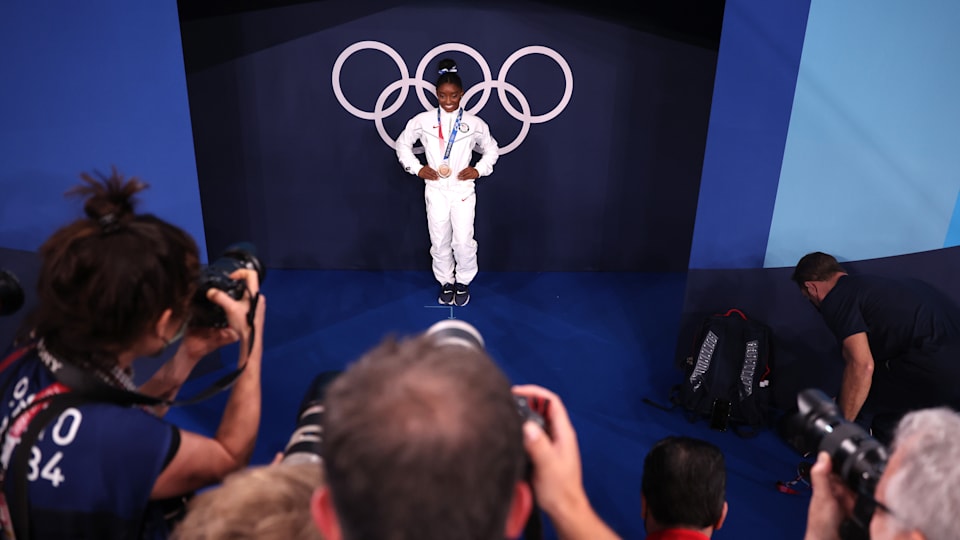Simone Biles' bravest act: choosing herself
The seven-time Olympic medallist showed the world the importance of putting one's self first

Simone Biles’ bravest move wasn’t any of her incredible, daring, viral artistic gymnastics elements, not the triple double nor the Yurchenko double pike. It was choosing herself on the world’s biggest stage at last summer’s Tokyo 2020 Olympic Games.
When Biles stepped down from the vaulting podium after getting lost while attempting a two-and-a-half twisting vault in the women’s team final, she knew she couldn’t keep competing.
She had a case of the 'twisties' – where a gymnast’s mind and body fall out of sync. She didn’t know what she might do on the other events, if more errors would cost Team USA a chance at any medal or worse endanger herself physically.
“I just felt like it would be a little bit better to take a back seat to work on my mindfulness, and I knew that the girls would do an absolutely great job,” Biles explained in the post-event press conference.
“I didn't want to risk the team a medal for kind of my screw-ups because they've worked way too hard for that. So, I just decided that those girls need to go in and do the rest the competition.”
"If it wasn't for her, we wouldn't be here."
In the moment, her act inspired her teammates.
“This medal is definitely for her, because if it wasn't if it wasn't for her, we wouldn't be here where we are right now,” said Jordan Chiles, who trained alongside Biles in Houston for two years leading to the Tokyo Games. “We wouldn't be a silver Olympic medalist because of who she is as a person.”
After the fact, her bravery showed the world the importance of prioritizing oneself, even when it means walking away from a dream.
While Biles received messages of support on social media from the likes of former U.S. First Lady Michelle Obama and actress Kerry Washington, the 24-year-old was working behind the scenes to be cleared to return to competition.
Biles, who won four gold medals at Rio 2016, had qualified for all five individual finals but withdrew from the all-around, vault, uneven bars and floor exercise medal rounds.
She returned to competition on the final day of artistic gymnastics competition at the Tokyo Games, having been cleared to compete in the balance beam final.
More than any medal
The three-time world balance beam champion changed her dismount, taking out any twists that could give her issues, and competed a dismount she hadn’t done since she was 12 years old.
“We just last minute decided to switch the dismount, which I probably have not done since I was like 12 years old because I've always twisted off,” explained Biles afterward. “But on the beam, that work is easy. I've always been able to do [those elements], it is just coming off, we didn't know what we were going to do or compete in the final.”
It didn’t matter. The modification had given her the confidence she needed to get back on the beam, to have one more chance to compete under the lights of Tokyo’s Ariake Gymnastics Centre.
Though she won the bronze medal, the seventh Olympic medal of her career, the routine itself and all she had been through in Tokyo meant more to her.
“Definitely bringing a light to the conversation of mental health [means the most],” Biles told reporters. “It's something that people go through a lot that's kind of pushed under the rug. I feel like we're not just entertainment, we're humans as well. We have feelings. And at the end of the day, people don't understand what we're going through.”
The tough choices Biles had made, stepping aside for five medal opportunities, had given the world a new perspective, but they had also been choices Biles made for just one person: herself.
“I hope it sends that first I did this for me and nobody else because I wanted to compete one more time at the Olympic Games,” said Biles. “It's not easy giving up a dream of five years and not getting to do it, so it was really, really hard. I've never been in the stands, so I just wasn't... I wasn't used to it. So, to have one more opportunity to compete meant the world.”
